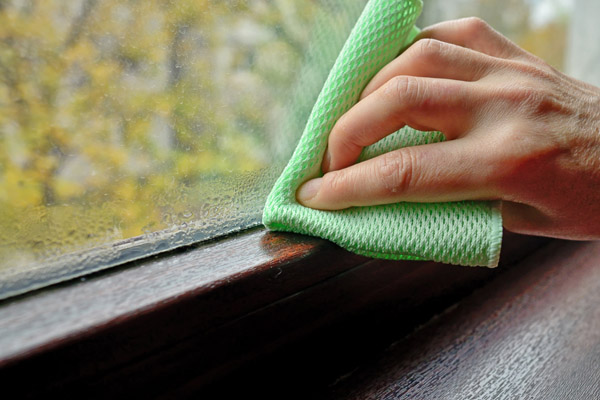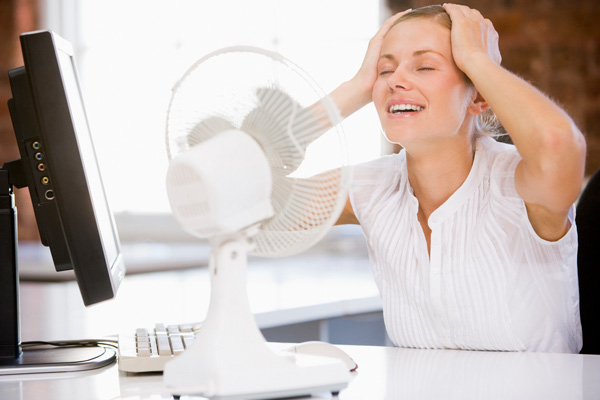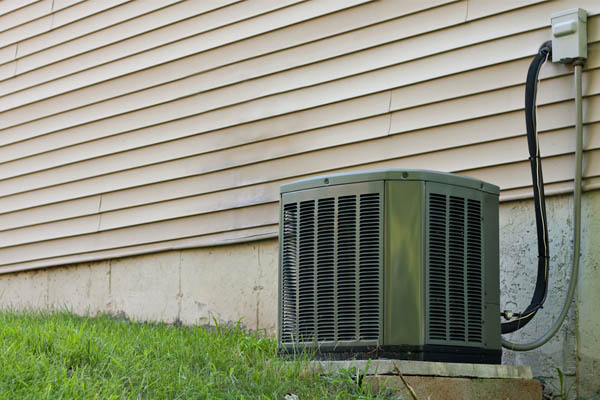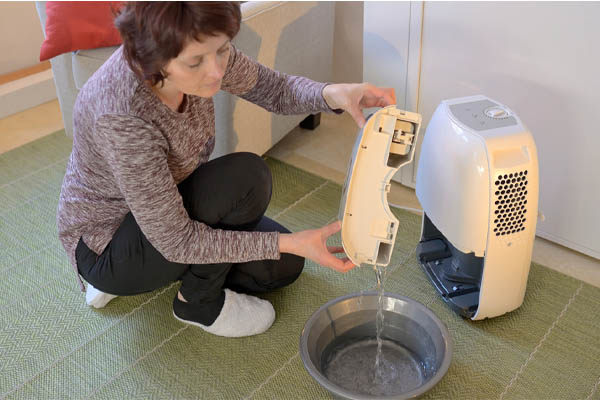How Does My AC Remove Humidity In My House?

You’ve most likely experienced humidity before if you live in an area with high temperatures and damp weather. It’s that miserable feeling where the weather is muggy and damp. It’s bad enough when humidity is outdoors. Humidity inside the home can be uncomfortable and lead to lots of problems. A good HVAC system will be able to help the problem though. Read these tips to learn how to remove humidity in your home.
What Is Indoor Air Quality?
Table of Contents

The quality of air in and around buildings is called Indoor Air Quality (IAQ). Often, this term is used when discussing how air quality pertains to people’s health. Health problems like difficulty breathing, allergic reactions, and flu-like symptoms can be caused by poor IAQ. If someone is exposed to indoor air pollutants regularly, they have a chance of developing respiratory diseases. Maintaining high indoor air quality standards is very important to avoid adverse effects.
How High Humidity Levels Impact Your Indoor Air Quality
High humidity is a major factor that contributes to poor air quality according to the Environmental Protection Agency (EPA). This is the case because humidity allows for mold and mildew to grow very easily. Mold and mildew that live in walls and porous surfaces release bacteria into the air that is potentially harmful to humans. Mold infestation symptoms include eye irritation, skin rashes, headaches, and lung infections. Additionally, homes that are frequently and extremely humid are more prone to dust mites and other allergens.
Signs Of High Humidity In Your Home

The humidity levels in your home can still be too high even if you have an air conditioning system or HVAC. Some symptoms of high humidity in the house include:
- Your skin feels clammy or you constantly sweat even though the air conditioning is on
- You have difficulty breathing
- Your allergies are bothering you
- There is condensation on the glass inside windows or the windows are fogged up
- Your house smells stuffy or musty
- Your ceilings or walls have water stains or look damp in some areas
- You have mold growing on the ceiling, walls, or somewhere else in your house
- There are cracks in your window or door frames
- There is wood inside or outside of your house that is rotting
The Effects Of High Humidity
Not only can high humidity cause health problems, but it can also create problems in your home. For example, wood may start to rot because of the extra moisture in the air. A potential effect of this issue is structural damage to your home. This can create openings for small animals like rats, termites, and cockroaches. Other undesirable effects include door frames and window frames cracking and deterioration to permeable household items.
Removing Humidity From Your Home
How Can My Air Conditioner Remove Humidity From My Home?

Air conditioners blow cool air into your house, but they also pull out hot and humid air. There is an evaporator coil in the HVAC system that condenses water from air in your house and sends it outside through a drain. When an air conditioner system works properly, it should keep your home at an ideal humidity level. So what should humidity be in the house with air conditioning? According to the EPA, 30% to 50% humidity is the optimal level. Any level higher or lower can lead to air conditioner humidity problems.
Dehumidifier Vs. Air Conditioner: Which Works Best?

A common question many people wonder about is whether an air conditioner or a dehumidifier is better for eliminating humidity. Essentially, a dehumidifier only removes moisture in the air. An air conditioner removes any extra moisture and cools the air. A portable dehumidifier can be ideal for removing moisture in only one area of the house. To cool larger areas and the whole home, an HVAC system is a better option. Also, air conditioners have air filters to help eliminate pollutants. Another option is a whole-house dehumidifier, which is ideal when you want to use an air conditioner with the dehumidifier. Dehumidifiers work by pulling out hot and moist air to lower the temperature in your home.
Your Air Conditioner & Humidity
Air conditioners help to reduce humidity in your house by removing moisture from the air and pushing it outside the house. Combining an air conditioner with a whole-house dehumidifier allows you to attain optimal and safe humidity levels. Schedule an HVAC tune-up to make sure your air filters, ducts, and evaporation coils are working correctly. If you think you have an air-conditioning humidity problem, call an expert to check out the situation so they can make any necessary repairs.
Call Hart Home Comfort For Expert HVAC Services

Hart Home Comfort offers great heating and cooling services in Nassau County, Suffolk County, and Queens, New York. We only hire excellent NATE certified technicians who are trained to give you the best HVAC tune-ups, installations, repairs, and replacements. Our experienced and knowledgeable techs know how to service your HVAC system accurately.
Hart Home Comfort has the most competitive heating and cooling service costs in this area. Our maintenance services will improve your indoor air quality while increasing your comfort, improving your energy efficiency, and reducing your home cooling costs. We can service your HVAC system while sticking to your budget. All of our work is backed with a guarantee to confirm your satisfaction. Give Hart Home Comfort a call today to schedule a service appointment or air conditioner tune-up. We also offer free, in-home estimates.
For any questions about what Hart Home Comfort can do for you, give us a call today. Click here to contact us now or call us at (631) 667-3200 to find out more!
